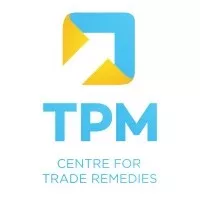On 13th November 2023, the WTO Secretariat published its Trade Policy Review of Türkiye. The Trade Policy Review Mechanism requires a periodic review of the trade policy and practices of WTO members to examine its adherence to the WTO commitments. This is the seventh Trade Policy Review of Türkiye. The review focused on the significant growth in trade in the country, trade agreements negotiated and concluded, and trade policies and measures imposed during the period of review. Some of the key observations pursuant to the review are highlighted below.
Growth in Turkish Economy
During the period of review, that is from 2016-2021, Türkiye witnessed a positive GDP growth rate, despite Covid-19. In fact, Türkiye is one of the few countries to have witnessed a positive growth rate during the pandemic. This was possible due to policy initiatives such as interest rate cuts, fast monetary and credit expansion, and extensive liquidity support. In 2021, the country had the highest GDP growth amongst G20 members, at 11.4%, which was possible due to favourable international conditions, increased exports due to higher external demands and absence of supply chain disruptions, faced by other countries.
Major exports from Türkiye in 2021 included exports of base metals and textiles, while major imports were of petroleum & mineral products, and machinery & electrical equipment. EU emerged as Türkiye's largest trading partner during the period of review.
Strategies and development plans initiated
In March 2021, Türkiye launched the Economic Reform Package (ERP) 2021-23 with the aim to put the country amongst the world's top 10 economies. Under ERP, Türkiye established a new Price Stability Committee, plans to reform SOEs and public procurement tenders, enact the Public-Private Partnership (PPP) Framework Law, restructure the Credit Guarantee Fund and prioritise import substitution and exports to less developed regions.
Türkiye undertook measures to increase Foreign Direct Investment in the country through the Investment Office of the Presidency and its FDI Strategy 2021-23. However, Türkiye's stock of FDI decreased in 2021 because of certain global uncertainties caused due to the pandemic.
Türkiye also initiated its Exports Strategy for 2023 and Eleventh Development Plan (2019-23), which are primarily focused on making the country export oriented. Under these initiatives, Türkiye intends to increase its exports of high value-added goods and make it a hub for trade in e-commerce. It also intends to reinforce an environment of governance and improve the current state of rule of law, judicial credibility, and corruption.
Further, in July 2022, Türkiye has implemented a new guiding strategy for 18 faraway countries, including India, with the aim to quadruple the exports of Turkish goods to these countries.
Bilateral and Multilateral Trade
Türkiye has 26 regional trade agreements (RTAs) in force with 63 trading partners. The agreement for Türkiye-EU Customs Union, which has been in force since 1996, forms the primary legal basis for all of Türkiye's RTAs and PTAs. The agreement requires Türkiye to align its commercial policy with the European Union's Common Commercial Policy. During the review period, Türkiye entered into new RTAs with a number of countries including the United Kingdom and is undergoing negotiations with Indonesia, Japan, UAE, among other countries.
Following the European Union's amendment to its Generalised System of Preference (GSP), Türkiye also modified its GSP Scheme. From 88 countries in 2015, Türkiye reduced the list of countries to 66, to whom GSP treatment was granted. Many countries, particularly India, were removed from the scheme while Kenya was added to the list.
Anti-Dumping Duty, Countervailing and Safeguard Measures
During the period of review, Türkiye initiated 44 anti-dumping investigations, one anti-subsidy investigation and imposed 33 definitive measures. As of July 2022, Türkiye had 131 definitive anti-dumping measures in place. Nearly half of these measures were against imports from China, 8 against India and the rest against other trading partners including Malaysia, Chinese Taipei, Thailand, Vietnam, Indonesia and South Korea.
As of September 2022, Türkiye had five safeguard measures in place on Toothbrushes, Yarn of Nylon or other Polyamides, Polyethylene Terephthalate Chips, Staple Fibres of Polyesters, and Grinding Balls.
The review highlights the growth witnessed by the Turkish economy during the period of review. Despite unfavourable economic conditions caused due to the pandemic and supply chain disruptions in the last few years, Türkiye has shown significant growth and development. Türkiye undertook notable steps to make their economy a global leader and a crucial player in international trade and services.
The content of this article is intended to provide a general guide to the subject matter. Specialist advice should be sought about your specific circumstances.


